Our Carbon Hero for December is Sample Coffee Co, a small business that believes in the power of little things to make a big impact. Their ethos is focused on offering a consistently high-quality coffee experience in balance with a responsible business practice based on respect, generosity, and joy.
We spoke to Ainhoa Martinez about how and why they have chosen to support us in restoring Australia.
Please tell us a little about Sample Coffee and why it matters to you to be restoring Australia?
We are a coffee roasting based in Sydney’s Inner West; we roast and provide coffee to other coffee shops and individuals through our online shop, and we also serve it in our three cafes located at St Peters, Surry Hills, and Chippendale.
Our mission is, as we say, to “source, roast, brew and serve the coffees we dream of drinking every single day”. We want to offer a fun and consistently great coffee experience, with integrity and care for everyone and everything involved in the journey. Our focus is on more than just the bottom line, and we change and evolve to be our best as a business.
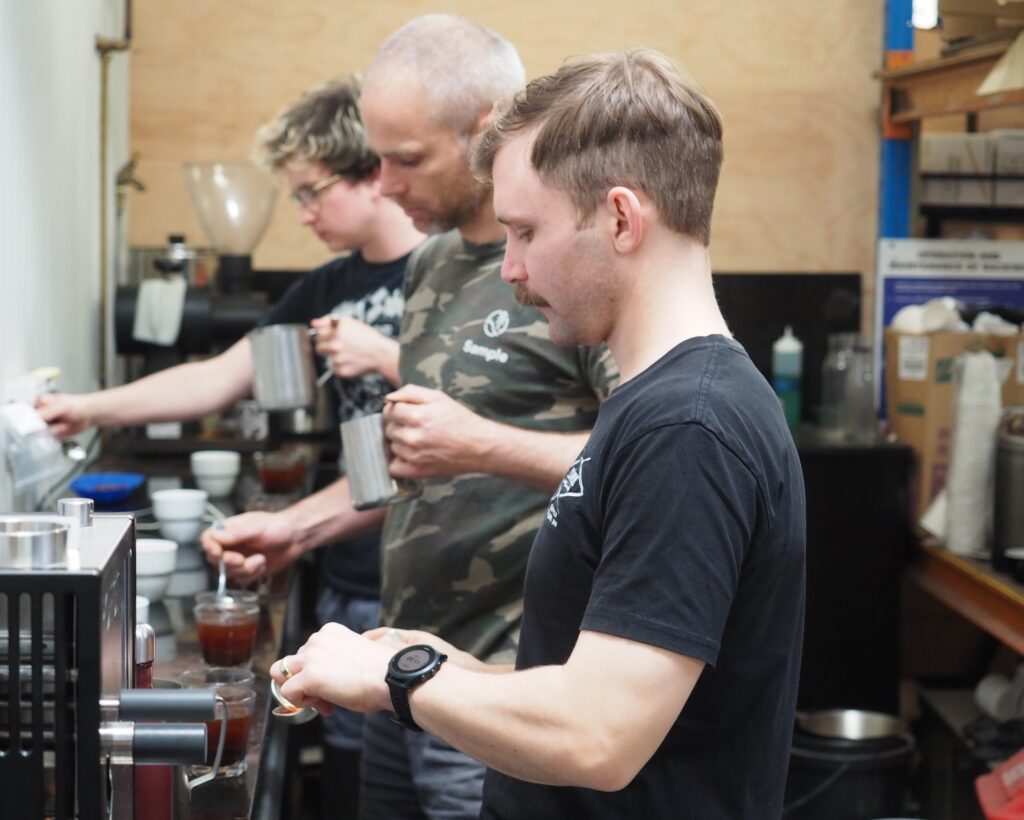
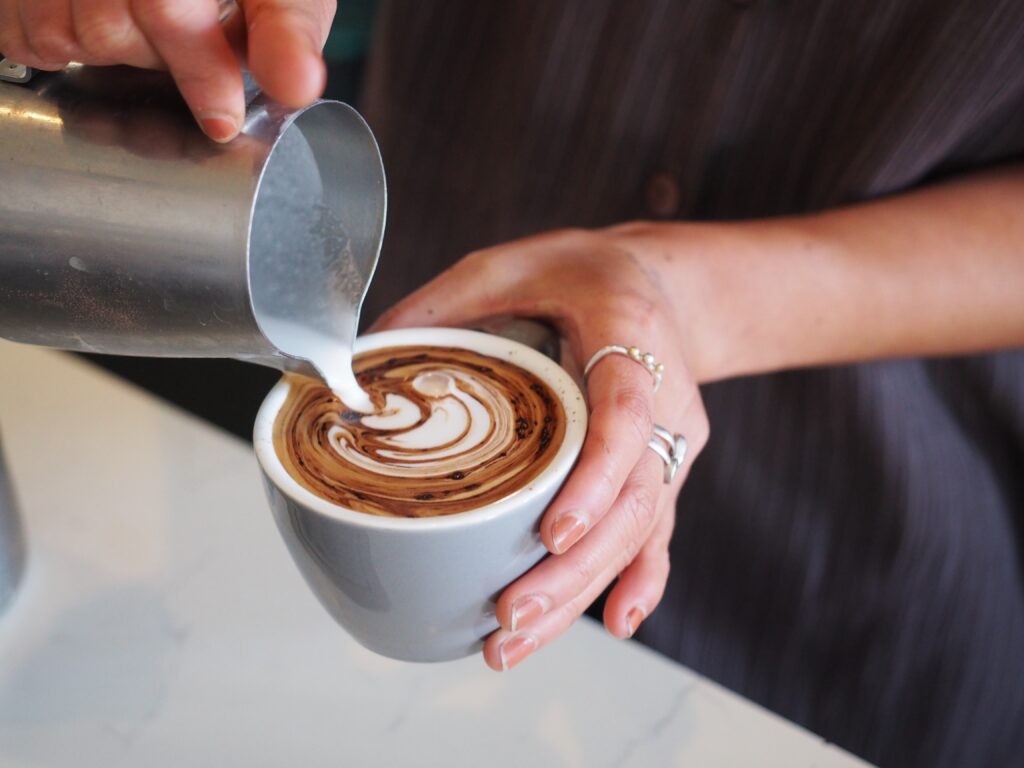
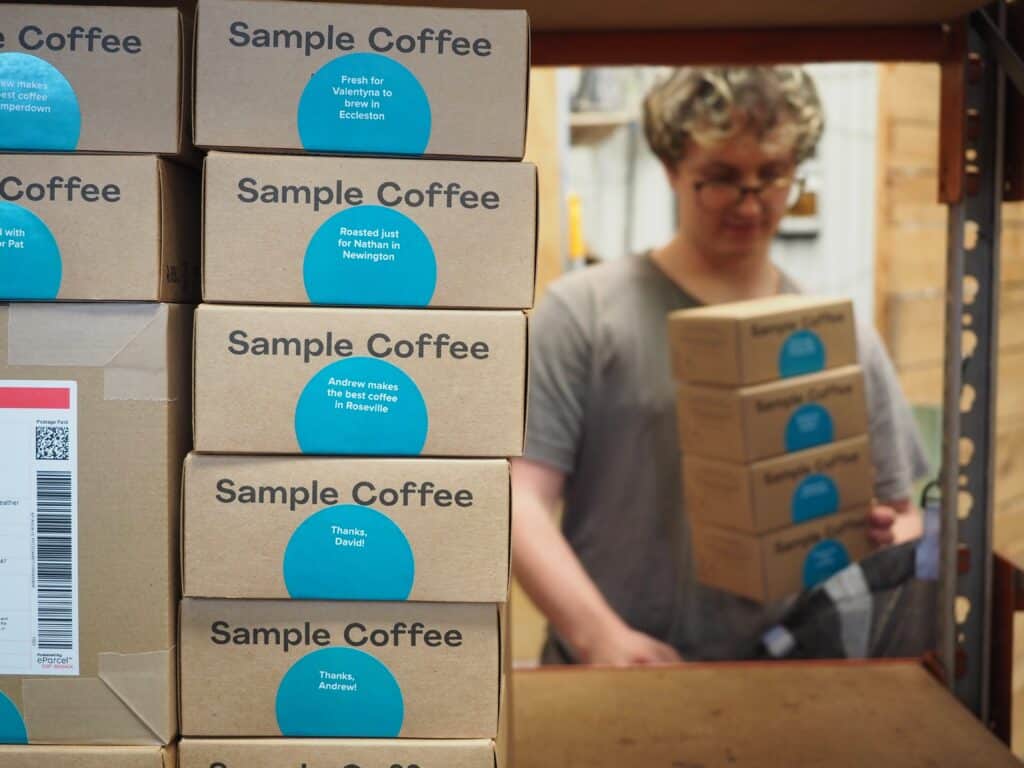
Why is caring for the environment important to you?
Like many others, we just know (and believe) in the power of the natural environments to preserve our air quality, stable temperatures, etc. Much of our team spends time in nature, and we love it. So it’s important to us to use our business to give a little and contribute to the preservation of nature.
How are you working with Carbon Positive Australia, and what motivated you to work with us?/what are your long-term goals?
Since January 2020, we added a 20 cent ‘levy’ on all our retail bean bag sales. This means that with every bag we sell, we’re putting funds into a cause that takes immediate action in building or re-building forests. At the end of the FY, we donate the sum, and CPoz can use it to plant trees.
We started after the big fires. We always had donated money to certain causes, but this system allowed us to donate on an ongoing basis and always in parallel with our sales volume — so more sales, more support, which is cool.
We chose CPOZ after doing some research and learning about their direct action. We liked that the use of funds was transparent and had a concrete use of planting trees.
What environmental goals would you like to achieve? And by when?
We have a few that I can’t name yet, but they all go towards reducing our footprint. 2020 and 2021 have been hard years for hospitality, and much of our efforts were deviated into making the business ‘survive’. Hopefully, we will come back to ‘normal’ and investigate and install new procedures to achieve that broad goal.
Is your organisation working on any other environmental or social initiatives?
In the operations and strategy side of things, we always keep assessing and including new procedures that come to the market and help us reduce our footprint in an effective, realistic way. For example, during the last year or two we went 100% Greenpower for our electricity, introduced bamboo cups and the Return container swap system, and recyclable soft plastic packaging for our beans.
On the donations/philanthropy side, we keep donating to World Coffee Research and participating in small community grassroots activities. For example, we recently raised funds for an organisation that delivers food to those who need it, and supported the Lockdown Pastries initiative, which gave 6k to Beyond Blue.
We’re always keen to add our bit whenever we can.
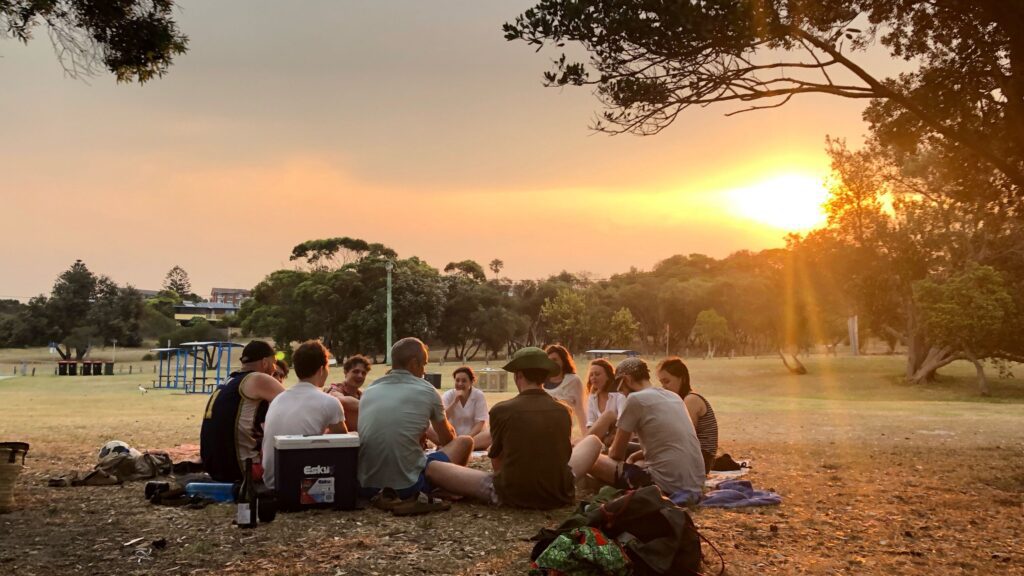
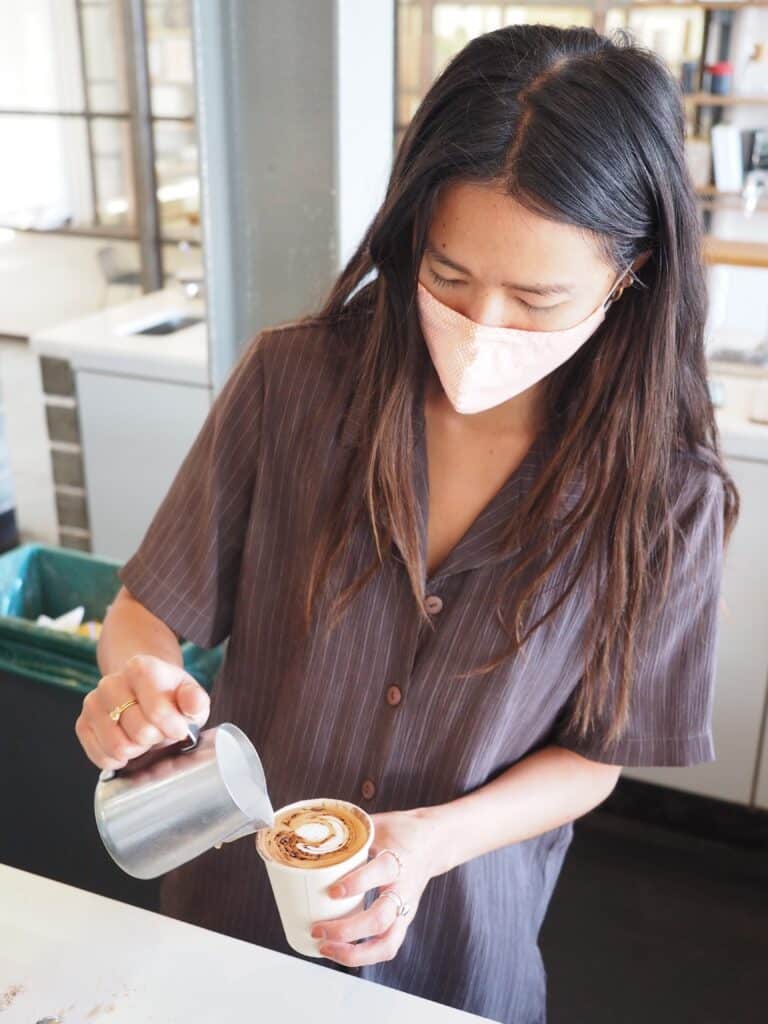
What role does the coffee industry have to play in making a change for the better?
Something great about the coffee industry is its capacity to reach and close bond with many local communities. For so many people, coffee and their visit to cafes is part of their daily ritual, creating connections and relationships around it.
So the coffee industry can have a massive capacity of change, using that scale and close connection with the people. We can use that scaling impact for the positive.
How can the coffee industry be an advocate for the environment?
In many ways. From sourcing coffee to the way it is served at cafes and distributing profits. For example, one could try to source coffees from farms that use less impactful processing methods or come from smaller farms that exist within the existing native forest fabric. Or a coffee shop could choose not to serve coffees on disposable cups and be powered by renewable energies. Or could donate part of their profits to a good cause.
There are so many ways to do something. It is true that is a hard industry, but we’re big fans of “start where you are” and do something, even if it’s small. It’s better than nothing.
In what ways can we as individuals minimise the environmental impact/or our carbon footprint from coffee?
It’s a tricky one. Of course, the first one is that be the least impact on the environment would be quitting coffee! But if you’re not ready to do so, you can start by minimising your consumption to something that is reasonable, like 1-2 cups hehe.
An important one would be to choose coffee roasted by people who can tell you where it comes from and other transparency metrics. And of course, reducing on cutting on the milk intake (perhaps even go plant-based milks).
Avoid disposable cups; having your coffee in the shop is even better (our dishwashers are way more efficient than handwashing your cup at work). If you have it at home, heat only the water that you will use, so you avoid wasting unnecessary energy…
There are many little things to do, and we certainly aren’t ones to tell people what to do. What we can do, though, is to offer as much information as we can, to source responsible through our partners, and to put in place the most efficient systems so our footprint is the lowest we can at each stage. And, of course, to use our business to give back and support those who are making this a better place.
